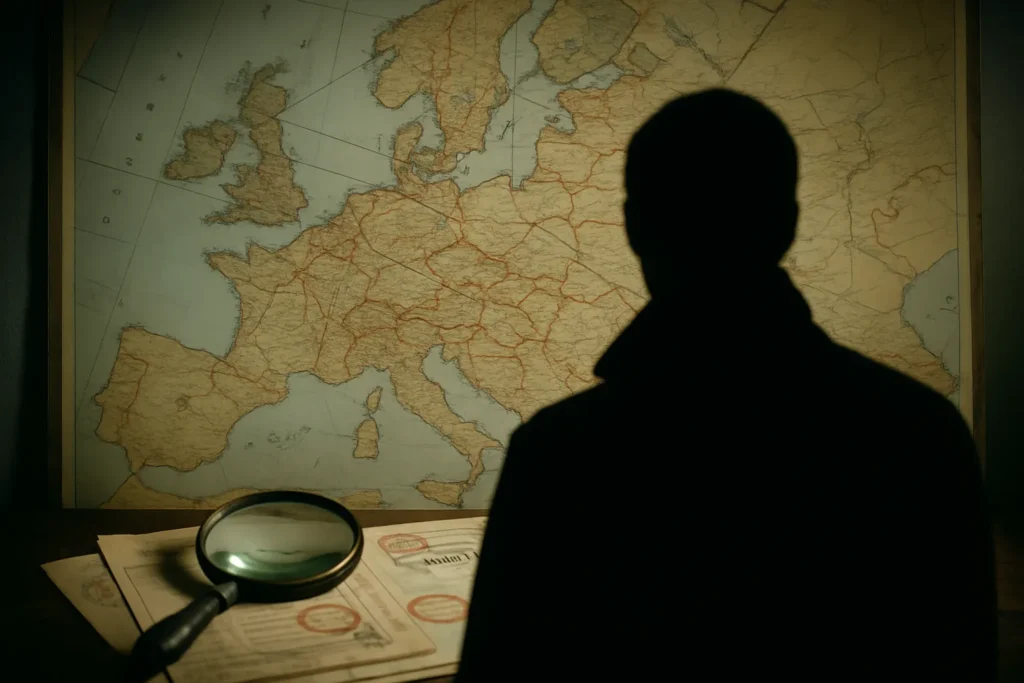Unveiling Kilowatt: The Hidden Web of Western Intelligence Sharing
When the world awakened to the horror of the 1972 Munich Olympics massacre—where 11 Israeli athletes were murdered by Palestinian militants—global headlines focused on the violence and its aftermath. What few then suspected is now newly confirmed: a broad, covert architecture of clandestine Western intelligence collaboration powered Israel’s largely successful campaign to hunt down suspected perpetrators across Europe. Declassified documents unearthed by historian Dr. Aviva Guttmann paint a chilling picture of 18 Western nations, including the US, UK, France, Italy, Switzerland, and West Germany, feeding streams of sensitive information to Mossad—Israel’s legendary spy agency—well before and after the watershed moment in Munich.
This collaborative framework, known under the codename “Kilowatt,” predated the massacre itself, signaling just how committed Western nations were to surveilling Palestinian organizations on European soil. Established in 1971, Kilowatt was not only vast in ambition but dizzyingly secretive. Not one participating country’s parliament or elected body exercised real oversight. Why such secrecy? Political fallout from openly abetting extrajudicial killings—especially in Europe’s own backyards—could have ignited firestorms of scandal and legal backlash, both domestically and abroad. So, the operation unfolded quietly, through thousands of telegrams, encrypted cables, and shared dossiers.
Dr. Guttmann’s research, drawing on Swiss archives, lays bare this now-indisputable reality: Mossad’s post-Munich Operation “Wrath of God” was not a lone-wolf Israeli vendetta, but instead the child of a collaborative Western security state apparatus willing to bend (if not break) its own rules in the name of anti-terrorism. According to Guttmann, “the primary intent may have been intelligence gathering, but many agencies soon realized how their data directly abetted Israeli assassination squads.”
The Shadow War: Shared Intelligence and Deadly Results
For anyone tempted to see these revelations as mere footnotes in Cold War counter-terrorism, a closer look reveals how remarkably integrated this operation became. The first Mossad target, Wael Zwaiter, an intellectual and Black September affiliate, was killed in Rome in 1972—after multiple confirmations by Western partners. Far from passive observers, European agencies offered granular details on the daily movements, vehicles, contacts, safe houses, and tactics of suspected Palestinian militants throughout the continent.
This wasn’t just an intelligence handoff. Research shows that the exchange worked both ways: Western agencies not only supplied raw tips but also looped Mossad in on their subsequent investigative findings once assassinations occurred—essentially treating Mossad operatives as shadow colleagues. Scholar Ronen Bergman, in his definitive work “Rise and Kill First,” describes how this symbiosis blurred ethical boundaries and legal accountability. Germany’s BND, Britain’s MI6, France’s DGSE: none are left unscathed by this legacy of unchecked collaboration.
The scale is staggering. “Thousands of messages traversed the Kilowatt system—far more than previously believed,” explains Dr. Guttmann. “And after each Mossad hit, intelligence flowed in both directions, documenting lessons learned and shaping future operations.” Israel’s insistence on confirming each target’s terrorist bona fides, as then-Prime Minister Golda Meir demanded, was built on the bedrock of these clandestine partnerships.
“What may be legal in terms of intelligence agreements is not always legitimate in the court of democratic values. Operating without oversight, these nations exchanged not just secrets but complicity.”
Such revelations force us to reckon with a deeper question: Who actually benefits when accountability is sacrificed for the supposed greater good? The consequences of these secret alliances resonate even today in the ongoing struggles to balance security imperatives with civil liberties and the rule of law.
Lessons Ignored: The Persistent Dilemma of Secrecy and Justice
History serves up a difficult but vital lesson here: Democracies risk eroding their own legitimacy when bypassing oversight in pursuit of short-term security. The Kilowatt case didn’t exist in a vacuum—it mirrored, and arguably inspired, subsequent secret intelligence pacts such as the Five Eyes alliance (spanning the US, UK, Canada, Australia, and New Zealand) that continue to skirt transparency in the name of national security.
Liberal democracies, at their best, champion the values of openness, accountability, and procedural fairness—not simply because these are noble ideas, but because the absence of such guardrails has repeatedly paved the way for abuses. Harvard legal scholar Noah Feldman warns, “Unchecked intelligence operations rarely remain focused on their original mandate. Mission creep is inevitable, and so too are the infringements on human rights.” For every Munich, there are uncounted collateral victims—guilt-by-association targets, mistaken identities, and, most damningly, the slow corrosion of trust in governments meant to serve us all.
Operation Wrath of God, dramatized in Steven Spielberg’s film Munich, continues to stir debate over justice versus revenge, the ethics of targeted killings, and where the moral line truly resides. Bluntly, do ends justify the means if those means corrode the very system they’re supposed to defend?
Today, as Europe and the United States wrestle with new waves of extremist violence, the shadow of Kilowatt looms long. Calls for transparency and parliamentary control over intelligence agencies are not antiquated idealism. They remain essential antidotes to the temptations of state secrecy and power without limit. The Western complicity in Mossad’s shadow war should serve as both a warning and a catalyst for deeper reflection: If democracies are to triumph over terror, they must strive to do so without abandoning the core principles that make them worth defending.

